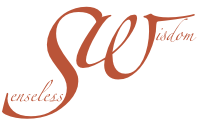Do you know that „peanut butter“ may not be called „Erdnußbutter“ (that’s simply peanut butter in german) in Germany? It’s not made of milk and butter in a european-union-regulated-ISO-standardized-german-word-kind-of-sense means that the products have to do something with milk in a controlled manner of production. Or something like that. So, the word „Butter“ can’t be used for this product in Germany. We therefore call it „Erdnußcreme“ or similar. This is not that interesting, I know, but when thinking about it I suddenly wondered about the problems we have with certain words in different languages. I mean what does butter mean in a non-german (which means product not made from cow milk) way? And what is the english word for „Creme“? It’s not ‚cream‘ because that is in fact the english word for a product made from cow milk, right? Even if you put an ‚ice‘ in front of it the definition remains.
It’s probably ‚paste‘ but that’s also the one half of copy & paste, a famous computer duo. And ‚Paste‘ [de] is (among other things) something to clean your teeth with. I think that fits for the english word, too. See how confusing this gets? I mean, how is it possible that we can communicate anyway?
So let’s recap quickly:
‚Butter‘ is not butter while it might be cream or paste which means it is a product made from cow milk (with or without peanuts, which are nuts sized like peas; named earth nuts if you stick to the german word) you can use to brush you teeth. Whether you speak german or english. You may btw. copy & paste this text if you like on any website if it’s about products made from cow milk in the european union. Or peanut butter. I’m out…
